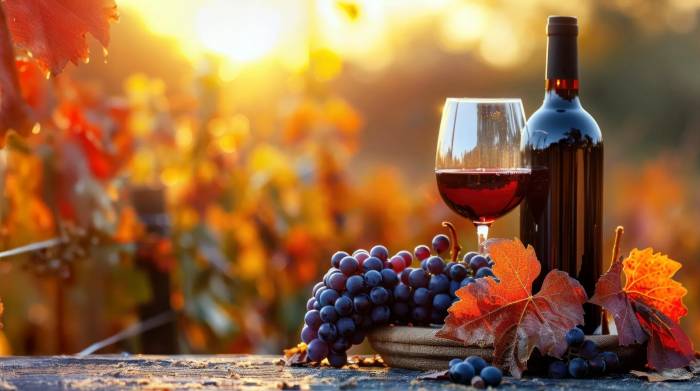French Viticultural Nurseries Unveil Seven-Point Plan to Tackle Rising Costs and Climate Pressures
New strategy emphasizes cost control, innovation, and closer ties with winegrowers as sector faces economic and environmental challenges
2025-11-05

At the 22nd annual congress of the French Federation of Viticultural Nurseries, held on October 22 in Lourmarin, Vaucluse, nursery professionals presented a new sustainability plan aimed at addressing current challenges in their sector. The plan focuses on controlling production costs, improving marketing strategies, and fostering innovation to build a more resilient business model.
Christophe Raucaz, president of the federation, described the plan as a roadmap for mastering costs, increasing efficiency, and encouraging innovation. The document is the result of collaborative work among various industry bodies and outlines seven key areas for improvement. These include economic, social, and environmental issues that affect the entire sector. Each nursery business is encouraged to use the plan as a guide, although many of its recommendations still need to be implemented.
One of the main priorities is to establish a clear reference for production costs using accounting data. Reducing labor expenses is also a goal, with the federation advocating for the continued exemption from employer payroll taxes for seasonal workers under the TO-DE scheme. Accelerating mechanization in production processes is another strategy to help manage costs.
Ensuring stable sales and cash flow is seen as essential for business sustainability. Marie-Catherine Dufour, technical director at the Bordeaux Wine Council (CIVB), emphasized the importance of sharing best commercial practices among members. The federation proposes that government planting subsidies should only be paid after invoices are settled, to guarantee income for nurseries. Discussions with banks are planned to develop loan products tailored specifically to the needs of viticultural nurseries—a financial tool that does not currently exist. The federation also wants to update general sales conditions between nurseries to prevent commercial transactions from weakening their finances.
Innovation remains a central theme in the new plan. The federation aims to build on research from the French Institute of Vine and Wine (IFV) and national vineyard development projects. Efforts will focus on improving nursery success rates by enhancing wood quality and refining criteria for plant stratification. There are also plans to develop sorting tools using imaging technology as part of the Qualigreffe project.
Artificial intelligence could play a role in making plant sorting more objective and efficient. Anastasia Rocque, director of IFV’s vine selection center, highlighted the need for technical and economic studies on physical protections against frost, hail, and rain in nurseries as part of climate change adaptation efforts. Reducing environmental impacts through precision spraying and alternative programs is also on the agenda.
The federation recognizes that some initiatives are already underway, particularly those linked to the collective Vitipep’s brand. Another significant goal is to strengthen ties with winegrowers by joining agricultural chamber boards and working more closely with farm unions on regulatory matters. The federation believes having a dedicated nursery representative within these chambers would be an important step forward.
The sustainability plan reflects a broad effort by France’s viticultural nurseries to adapt to economic pressures and environmental changes while maintaining their role in supporting the country’s wine industry.
Founded in 2007, Vinetur® is a registered trademark of VGSC S.L. with a long history in the wine industry.
VGSC, S.L. with VAT number B70255591 is a spanish company legally registered in the Commercial Register of the city of Santiago de Compostela, with registration number: Bulletin 181, Reference 356049 in Volume 13, Page 107, Section 6, Sheet 45028, Entry 2.
Email: [email protected]
Headquarters and offices located in Vilagarcia de Arousa, Spain.